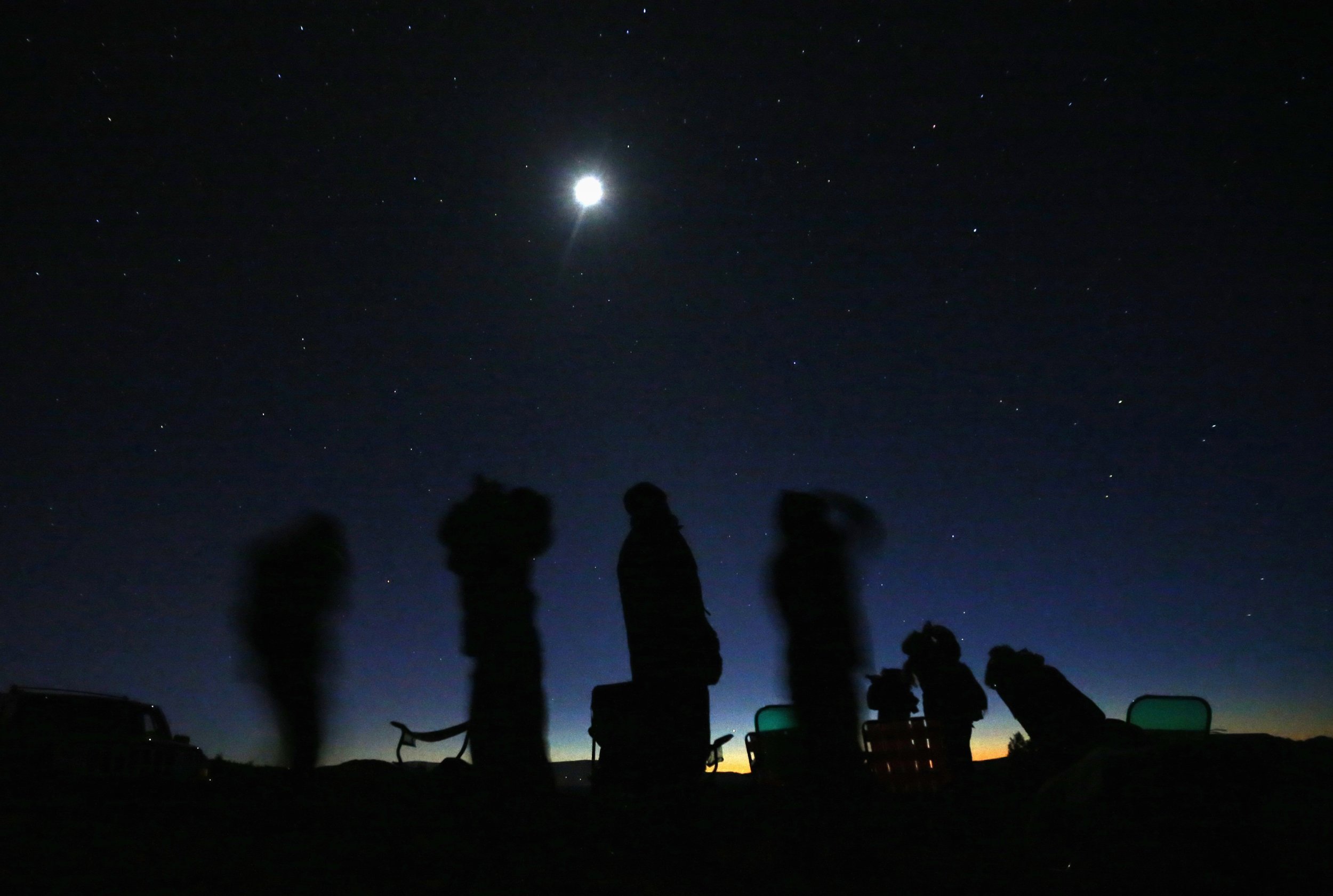
This article was originally published on The Conversation. Read the original article.
Accounts of mysterious flashing lights in the sky, spacecrafts and encounters with "real" aliens reflect high levels of public interest in UFOs and the belief that there is "something out there". However, many psychologists are less convinced, and think they can provide more down-to-earth, scientific explanations.
Belief in aliens has increased steadily since the birth of modern alien research in the 1940s and 1950s, following the news surrounding a classified U.S. military project at Roswell Air Force Base, New Mexico. Surveys in Western cultures estimated belief in aliens to be as high as 50 percent in 2015. And despite the fact that it is considered rare, a significant number of people also believe they have experienced alien abduction.
Present day awareness of alien abduction dates to the 1961 case of Betty and Barney Hill, who witnessed odd lights and experienced "missing time" and "lost memories" while driving. Following their experience, Betty and Barney experienced psychological problems and subsequently sought therapy. These symptoms are staple consequences of abduction are often loss of memory, alongside problems such as sickness, sleepwalking, nightmares and psychological trauma.
Although the accuracy of the numbers is questioned, a poll by the Roper Center for Public Opinion Research conducted 30 years after this account said that around 3.7m Americans believed that they too had experienced alien abduction.
Sceptics argue that alien-related encounters are merely hoaxes created for financial gain or social advantage. Perhaps Roswell is the most famous example. Initial reports from the 1940s left sufficient gaps of explanation for Ray Santilli to release in 1995 what he claimed was film footage showing an alien autopsy from the time, further confusing the issue. He later admitted it was a hoax. The incident sparked controversy and prompted claims that an alien craft had crash-landed in the New Mexico desert and that U.S. authorities were involved in a cover-up.
The theory that alien abductions are hoaxes may be true in a few cases, but there is no reason to assume that the majority of "experiencers" are frauds. In fact, psychologists have come up with a number of plausible, scientific explanations for people's supposed alien encounters.
Personality traits
One explanation is that when people believe they have had an experience of alien abduction, they have misinterpreted, distorted and conflated real and imagined events. Hence, sceptics of alien encounters explain them away in terms of psychological processes and personality characteristics.
Several studies report that experiencers do not typically differ from non-experiencers on objective psychopathological measures—those that assess psychological well-being and adjustment—and have no history of mental instability. However, one characteristic that is associated with abduction experiences is a proclivity for fantasy.
Mixed evidence supports the theory that fantasy-prone people engage in elaborate imaginings and often confuse fantasy with reality. There are also other psychological explanations, such as dissociation—where an individual's mental processes detach from each other and from reality, often in response to extreme or stressful life events. A tendency toward being fantasy-prone and dissociation has been linked in studies to childhood trauma and hypnotic suggestibility.
Psychologists argue that hypnosis encourages the creation and recall of detailed fantasies. For example, Betty and Barney Hill's account was typical of reported alien encounters: medical examinations or procedures, communication with alien captors, a powerful, mystical feeling, tours of spaceships and journeys to other planets before being returned to the car. And it was under hypnosis that these "missing memories" were "recovered".
It's for these reasons that it's believed alien abduction experiences may arise from a combination of personality characteristics and susceptibility to false memories.
Brain sensitivity
Studies suggest that neuropsychological theories, particularly sleep paralysis and temporal lobe sensitivity, also could explain claims of alien abduction.
Sleep paralysis is a feeling of being conscious but unable to move, that occurs when a person passes between stages of wakefulness and sleep.
Experiencers' claims share characteristics with sleep paralysis: a sense of being awake, not dreaming, and realistic perceptions of the environment. The inability to move, a feeling of fear or dread, and the sense of another presence—perhaps evil or malevolent—are common symptoms. Also common are a feeling of pressure on the chest and difficulty breathing, and of being held or restricted to a lying position: most sleep paralysis attacks occur while the individual is lying on their back.
Sceptic Michael Shermer once collapsed from sleep deprivation following an 83-hour bike race and his support team rushed to his aid. Shermer was caught in a "waking dream" and so perceived them as aliens from the 1960s television series The Invaders. It also explains some ghost sightings, such as the "night hag", often experienced by those who suffer from sleep paralysis.
Temporal lobe sensitivity is a theory that suggests the temporal lobes of some people's brains are more vulnerable to influence from low-level magnetic frequencies. Michael Persinger, a neuroscientist at Laurentian University in Canada, is among those who believes that increased temporal lobe activity can explain paranormal experiences such as alien abduction. His theory is that magnetic fields stimulate the temporal lobes, resulting in hallucinatory experiences similar to those reported by alien abductees.
None of this is to say that many people who believe they have experienced alien abduction are liars, merely that their accounts and experiences can be explained through recourse to theories with a scientific basis. There are many logical, plausible scientific explanations, none of which rely upon the existence of aliens. However, it should also be noted that not all reported alien abduction experiences can be easily explained by any of these scientific theories—and this throws up many more questions.
Ken Drinkwater is Lecturer and Researcher in Cognitive and Parapsychology at Manchester Metropolitan University and Neil Dagnall is Reader in Applied Cognitive Psychology at Manchester Metropolitan University
Uncommon Knowledge
Newsweek is committed to challenging conventional wisdom and finding connections in the search for common ground.
Newsweek is committed to challenging conventional wisdom and finding connections in the search for common ground.
About the writer
To read how Newsweek uses AI as a newsroom tool, Click here.








